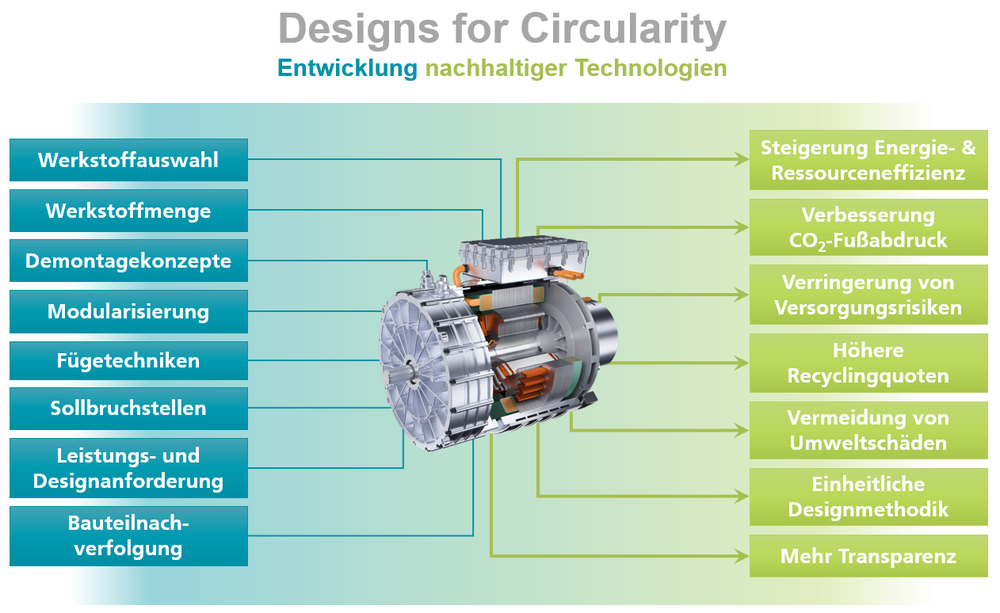7/2024 - Project explanation and research updates of the MaTiC-M project
MaTiC-M Projekt explanation: The circular economy and the development of sustainable technology designs, also known as designs for circularity, are becoming increasingly important in view of global climate change. When developing new products, the focus has so far been on increasing efficiency and performance during the phase of usage, for example by reducing component weights. The prospects for recycling at the end of life are usually not considered during the development. Consequently, a significant proportion of recycled materials are frequently not optimally utilised, despite the growing volume of scrap. This is largely due to the technical complexity, time-consuming nature and high cost of disassembling, sorting and suitable recycling.
The objective of the DLR impulse project MaTiC-M (Methods and Technologies for an intelligent Circularity of Materials) is to develop a comprehensive approach to a design for circularity methodology. This should encompass the traceability of the raw materials utilised at the end-of-life/end-of-use of the components through transparency, standardised evaluation and the further development of disassembling and recycling routes as early as the product development stage. In order to achieve this, the Institute of Data Science is developing AI and digitalisation methods as well as software tools that provide important decision-making aids for a circular design during component development. By evaluating the material flow routes and deriving recommendations for action, the aim is to achieve higher recycling rates and a low environmental impact.
The Department of Data Management and Enrichment at the Institute of Data Science manages the main work package "Digital Methods and Tools" and also implements a significant part of it. We are pursuing the following goals in this main work package:
- Creation of a knowledge graph to exchange all information relevant to the product life cycle and recycling
- Development of methods and tools so that domain experts can easily store their knowledge in such knowledge graphs
- Development of methods and tools for component tracking (provenance) based on the information in the knowledge graph
- Development of methods and tools for the automated evaluation of recycling routes so that products can be designed to be as recycling-friendly as possible right from the design stage
The MaTiC-M consortium is made up of the DLR institutes of Low-Carbon Industrial Processes, Future Fuels, Networked Energy Systems, Vehicle Concepts, Data Science, Robotics and Mechatronics, System Dynamics and Control, AI Safety and Security, Materials Physics in Space, Maintenance, Repair and Overhaul, Structures and Design, Lightweight Systems and Materials Research.
MaTiC-M at a glance:
💬 Development of a holistic design-for-circularity methodology
💬 13 DLR institutes involved
💬 Research areas energy, transport, space and aviation
💬 Duration until the end of 2025
Research updates: The current status of publications involving the Institute of Data Science:

